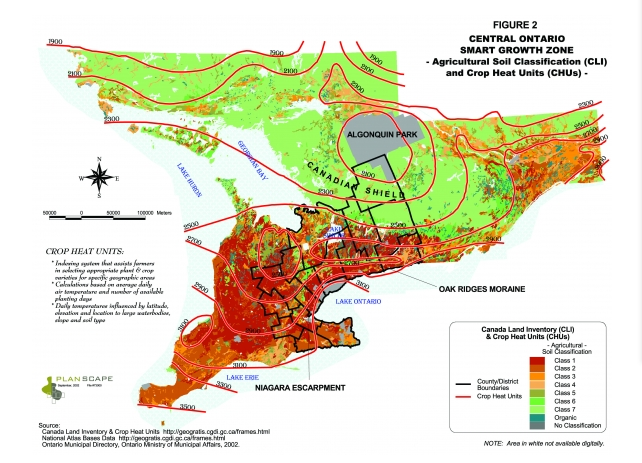1/11 Red areas show class 1 soils, the best in Canada. Sprawl is eating it up. @cffont says 175 acres per day is lost to urban development and aggregate extraction. @fordnation's new "Market-based approach" to urban planning=a boon for developers/bad for farms #ontag
2/11 @EnvHamilton says, in Aug 2020 @fordnation issued a new market-based Land Needs Assessment methodology which gives @fordnation the final word in planning the housing mix of municipalities. Municipalities no longer have control over how they grow.
#ruralontario
#ruralontario
3/11 Of course a "market based approach" = "profit based approach." Who do you think will be the winners if the Provincial gov't mandates that single family homes must be included in every growth plan? @eqhomes1 @mattamyhomes @Remingtongroup1 and dozens of other developers
4/11 As @njaved rightly pointed out Ford has now put developers in advisory roles overseeing our gutted Conservation Authorities. https://www.thestar.com/news/gta/2021/01/13/developers-to-play-advisory-role-in-group-overseeing-doug-fords-new-conservation-authority-rules.html
5/11 The fact that the PCs have created a "working group" comprised of developers to deal with the debacle of the dismantling of our Conservation Authorities says a lot about who's pulling the strings with regard to both Sprawl and gutting our Conservation Authorities: Developers
6/11 Example: the @cityofhamilton is currently requesting feedback from the public with their Land Needs Assessment -LNA -survey. They give two options on growth.
1)Sprawl a lot
2) sprawl a ton https://engage.hamilton.ca/grids2mcr
1)Sprawl a lot
2) sprawl a ton https://engage.hamilton.ca/grids2mcr
7/11 "No more sprawl" should be an option. Setting firm our city boundaries would remove the blank canvases of pristine farmland from the grasp of developers and would force them to build and fortify within our cities improving infrastructure, transit and home affordability
8/11 As @TheSpec's Dec. editorial points out, outlying communities created by Sprawl are profitable for builders and costly for taxpayers with little return except for an increase in CO2 emissions due to their car-centric nature. https://www.thespec.com/opinion/editorials/2020/12/09/urban-boundary-expansion-a-recipe-for-sprawl.html
9/11 @cityofhamilton and hundreds of other municipalities across the country have declared a climate emergency but don't connect the dots between Sprawl and climate. Loss of agricultural land, lack of public transit and car dependent communities all increase CO2 emissions.
10/11 Not to mention the social impacts of sprawling cities that decay from the inside out due to the the concentration of poverty and the acceleration of socio-economic decline within cities, towns, and older suburbs.
11/11 We must push back and stop Sprawl by standing up to @fordnation's "Developer based" approach to how cities plan their own land needs. Or we can simply hand over the keys to the farm. Learn more from @iancborsuk

 Read on Twitter
Read on Twitter


